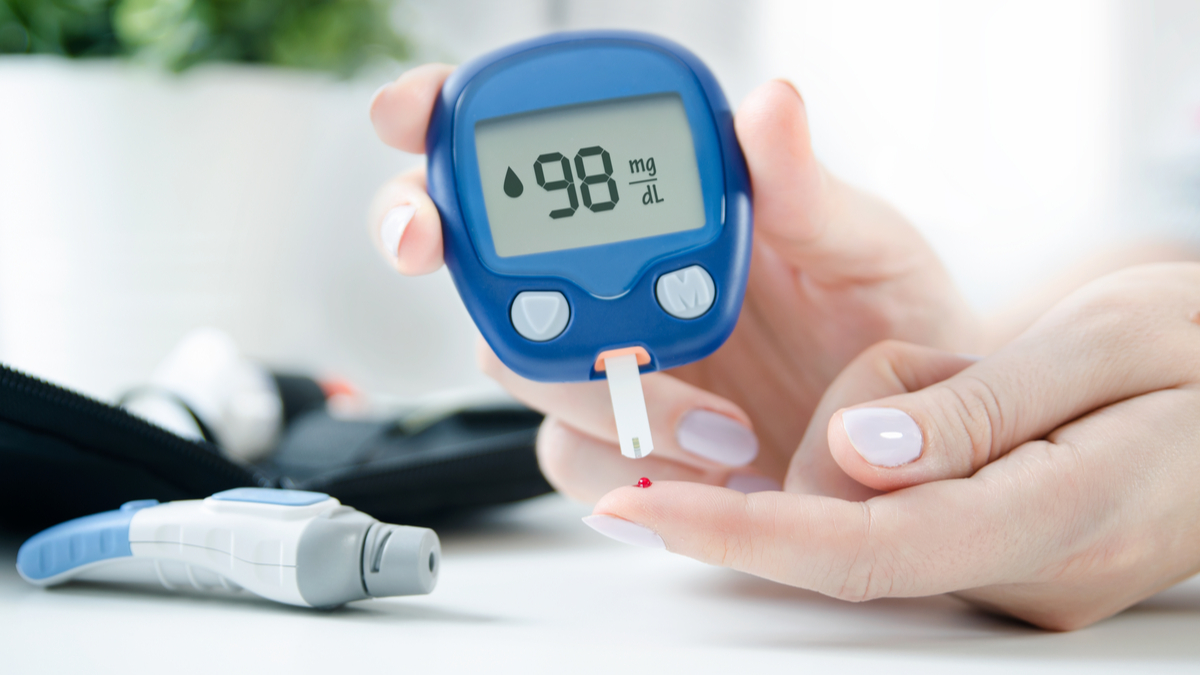Professor Roy Taylor is professor of medicine and metabolism at Newcastle University and honorary consultant physician at Newcastle Upon Tyne Hospital. He’s also the author of Your Simple Guide to Reversing Type 2 Diabetes. Here he looks at some common diabetes worries.
Q: Why would my blood sugar be high in the morning before I’ve even eaten anything?
A: If you have diabetes, you may be puzzled to find that your blood sugar is high even first thing in the morning – when you have not eaten anything for 12 hours or more.
Sometimes it can be even higher early in the morning than it was at bedtime. What is going on?
Surely you didn’t raid the fridge in the night? To explain this, I need to tell you about the neat way blood sugar is normally controlled overnight.
First thing in the morning, none of the sugar in your blood is from food. In fact, all of it has been made by your own body – by your liver.
Why does your body make this dangerous stuff? Well, because a constant level of sugar is vital to fuel your body. All parts of your body need a constant supply of energy. So your liver normally makes just the right amount – day and night.
In Type 2 diabetes, however, your liver is making too much sugar and has nowhere to store it, so keeps pumping it out into your bloodstream.
 Q: How can type 2 diabetes affect your feet?
Q: How can type 2 diabetes affect your feet?
A: Nerves anywhere in the body can be damaged. Have you ever experienced a “dead-leg”? By sitting awkwardly and squeezing a nerve for too long, you can block capillary flow of blood to the nerve and cause it to stop working.
If you are in normal health, the numbness will go away within a few minutes of relieving the pressure. Unfortunately, nerve problems in diabetes are not so easily reversed.
Numbness in feet is a particular problem because it prevents the body’s normal warning sign of trouble – i.e. pain. If your new shoes are rubbing, you will stop walking or change shoes.
But if you cannot feel the pain, you will carry on walking while the damage continues silently. This can lead to skin breaking down and opens the door to infections, possibly with devastating consequences. In diabetes, the motto for feet is ‘Check ’em or lose ’em’.
This may sound brutal, but there is no point in putting a gloss on things here: providing clear information about the very real risks is essential. You do not want a doctor who will cover up the hard truth. In the UK, about 170 amputations are performed every week because of diabetes. Yes, every week!
If you’re concerned, there are changes to look out for, such as any breaks in the skin or build-up of hard skin, such as calluses. Also, any loss of feeling in the toes is important.
Loss of sensation is unlikely to be fungal in nature. The most common cause would be high blood sugar levels. This should prompt daily, brief checks on the feet – you could make it part of your bedtime routine – as well as ensuring proper management of blood sugars and losing weight.
Also, wear comfortable socks without seams and ensure footwear is comfortable. And when buying new shoes, beware: your feet will not tell you whether they are too tight – you must feel from the outside.
 Q: What other ways can diabetes affect my body?
Q: What other ways can diabetes affect my body?
Any sort of infection is more likely when blood sugar levels are raised, including skin infections.
Breaks in the skin, such as small cuts, are prone to getting infected, and urine infections are very common, too. This may sound like a depressing list – but these issues are not the worst of it.
If blood sugar levels are raised for years, then more serious, long-term problems will start stacking up. Left too high for years, raised sugar levels can damage the delicate blood vessels that supply food and oxygen to all parts of the body.
When organs don’t get their regular grocery order, they stop working properly.
The eye is particularly sensitive. The back of your eye can become damaged, threatening your eyesight. Tragically, diabetes is a common cause of loss of vision.
High sugar levels can also cause the kidneys not just to struggle, but to lose function altogether. Diabetes accounts for around half of patients needing kidney dialysis treatment. This has to be done three times every week, and it severely affects the enjoyment of life.
Unfortunately, the problems caused by diabetes do not end there. It can bring about fatty changes to blood vessel walls so that they become more easily blocked.
Blockages in the blood vessels to the heart muscle cause heart attacks. Blockages in those supplying the brain cause strokes. This is why heart attacks and strokes are more common in people with diabetes.
Blockages in the main blood vessels to the legs cause poor circulation to the feet, making other problems worse and amputation more likely.
Your risk factor for developing any of these problems depends quite a lot on the age when diabetes starts.
Unlike certain other illnesses where youth may be on your side, Type 2 diabetes puts people in their 20s or 30s at far greater risk of serious trouble.
Did you know that strength training can cut your diabetes risk?







